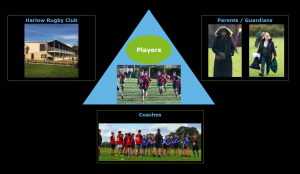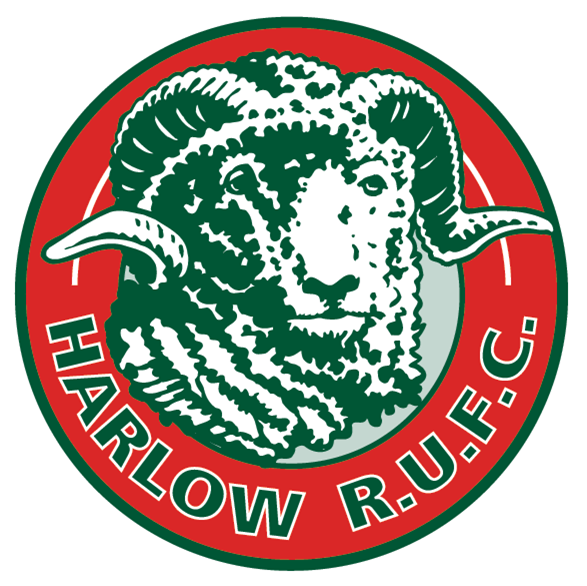Player Centric Approach

Player Centric Approach to Coaching and Playing Rugby @ Harlow
Here at Harlow Rugby Club our approach to Coaching Rugby puts players at the centre of our thought process and this is supported by all those around the player, this starts with the players and goes on to include those closest to them.
The Players:
- Committed to enjoying their rugby through showing a willingness to improve no matter their ability.
- This commitment is supported by the player aligning to the RFU Core Values
- In some of the older age grade teams’ players may be asked to sign a team agreed commitment to each other. This could be similar to the agreement many pupils sign when they start secondary school.
The player is then supported by:
The Club:
- Follows a Volunteers Charter included in the Harlow RUFC Full Volunteer Information Pack setting out what you can expect from a Volunteer and how a Volunteer will behave and preserve the good name of Harlow Rugby Club More info
- The club is the link to ensure all players and coaches have the relevant insurance in place
- The club provides support for our coaches to maintain and develop their skills
- The club is central to supporting the RFU Core Values
The Coaches & Managers:
- The coaches have pledged to follow the Harlow Rugby Club Coaching Pledge
- The coaches are supported by the club to gain the qualifications which will help them deliver excellent coaching. You can find out more here
- Coaches are offered the opportunity to be mentored by other coaches at the club
- Following the Harlow Rugby Club Coaching Curriculum which has been prepared by the coaches and helps standardise our approach across the club with the use of consistent terminology. This supports player development for both Male and Female players through the age grades.
The Player’s Parents and Guardians:
- Adherence to the RFU Core Values of Teamwork, Respect, Enjoyment, Discipline, and Sportmanship
- Supporting our many volunteers including Coaches and Managers, perhaps offering to become a volunteer themselves in a role such as first aid, or just helping out set up for each game or training session.
Before your child’s match / training session:
- Help your child to get their kit ready – it is their responsibility, not yours, but they need to learn how to do this
- Provide an environment where you praise effort and reinforce commitment – a young player choosing to do something will, if praised, seek to do something well if they enjoy it. This is the basis for developing commitment in players
- Help your child to fuel correctly – a balanced diet is as important to their health as it is to a successful training session
- Ask your child if they have packed their water bottle – the best way to get players drinking enough is to have a drink available to them at all times. Educate your child to take responsibility for this important piece of kit!
- Help your child to get enough rest
- Help your child go to play and practice in a positive frame of mind
During your child’s match / training session:
- Work with the coach to praise effort – this will encourage every player to try their best at executing skills, discipline, and sportsmanship. This will lead to players who are willing to try things, take responsibility for making decisions and will ultimately make the players real winners!
- Remember that the game is about more than the result – it is part of the learning process of the player and it is about the players having fun
- The coach is responsible for how the team and the players develop. They will make decisions that are part of the coaching plan – please support the coach in the decisions made, even if you don’t understand them at the time
- Make sure your body language is positive at all times
- Represent your child in a positive manner. The players and coaches will deal with their decisions and those of others
- Your child will thank you for praising effort and not criticising mistakes – children must not be frightened to try things and learn from their actions
- Don’t shout at the player with the ball – he / she is busy!
- Make sure your child is as proud of your touchline behaviour as you are of their playing
After your child’s match / training:
- Provide praise for the effort your child has given and the processes they went through to get there. Praising effort encourages the child to work harder, focusing on ability encourages the child to carry on doing what they currently do!
- Provide them with unconditional support and encouragement
- Identify with the child the things that they can learn from this match / practice and use this to help them improve
- Engage with the coach to identify things that you can encourage your child to practice away from the rugby club.
